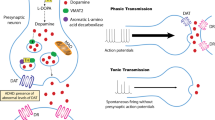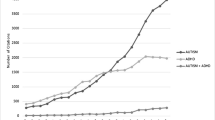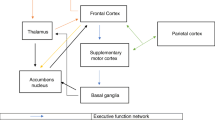Abstract
Frontotemporal lobar degeneration is an umbrella term for several different disorders. In behavioral variant frontotemporal dementia (bvFTD), patients show deterioration in cognition and social behavior. New diagnostic criteria proposed by the International Behavioral Variant FTD Consortium provide greater sensitivity in diagnosing bvFTD. Current pharmacological management of symptoms relies on medications borrowed from treating Alzheimer’s disease (AD) and psychiatric disorders. The evidence for using AD medications such as acetylcholinesterase inhibitors is questionable. Psychiatric medications can be helpful. Trazodone or SSRIs can have some efficacy in reducing disinhibition, repetitive behaviors, sexually inappropriate behaviors, and hyperorality. Small doses of atypical antipsychotics may be helpful in decreasing agitation and verbal outbursts. Nonpharmacological management includes caregiver education and support and behavioral interventions. While symptomatic treatments are likely to remain important behavior management tools, targeting the underlying pathology of bvFTD with disease-modifying agents will hopefully be the future of treatment.
Similar content being viewed by others
References
Papers of particular interest, published recently, have been highlighted as: • Of importance •• Of outstanding importance
Neary D, Snowden JS, Gustafson L, et al. Frontotemporal lobar degeneration: a consensus on clinical diagnostic criteria. Neurology. 1998;51:1546–54.
Rascovsky K, Hodges JR, Kipps CM, et al. Diagnostic criteria for the behavioral variant of frontotemporal dementia (bvFTD): current limitations and future directions. Alzheimer Dis Assoc Disord. 2007;21:S14–8.
Mendez MF, Shapira JS, McMurtray A, et al. Accuracy of the clinical evaluation for frontotemporal dementia. Arch Neurol. 2007;64:830–5.
•• Rascovsky K, Hodges JR, Knopman D, et al. Sensitivity of revised diagnostic criteria for the behavioural variant of frontotemporal dementia. Brain. 2011;134:2456–77. This paper presents new criteria for diagnosing bvFTD. The paper demonstrates that the criteria are more sensitive and presents data on the relative prevalance on behavioral symptoms in pathologically confirmed cases.
Mourik JC, Rosso SM, Niermeijer MF, et al. Frontotemporal dementia: behavioral symptoms and caregiver distress. Dement Geriatr Cogn Disord. 2004;18:299–306.
Adenzato M, Cavallo M, Enrici I. Theory of mind ability in the behavioural variant of frontotemporal dementia: an analysis of the neural, cognitive, and social levels. Neuropsychologia. 2010;48:2–12.
Rankin KP, Gorno-Tempini ML, Allison SC, et al. Structural anatomy of empathy in neurodegenerative disease. Brain. 2006;129:2945–56.
Huey ED, Armstrong N, Momeni P, Grafman J. Challenges and new opportunities in the investigation of new drug therapies to treat frontotemporal dementia. Expert Opin Ther Targets. 2008;12:1367–76.
Ikeda M, Brown J, Holland AJ, et al. Changes in appetite, food preference, and eating habits in frontotemporal dementia and Alzheimer's disease. J Neurol Neurosurg Psychiatry. 2002;73:371–6.
Mendez MF, Foti DJ. Lethal hyperoral behaviour from the Kluver-Bucy syndrome. J Neurol Neurosurg Psychiatry. 1997;62:293–4.
Piguet O. Eating disturbance in behavioural-variant frontotemporal dementia. J Mol Neurosci. 2011;45:589–93.
Piguet O, Petersen A, Yin Ka Lam B, et al. Eating and hypothalamus changes in behavioral-variant frontotemporal dementia. Ann Neurol. 2011;69:312–9.
Carey CL, Woods SP, Damon J, et al. Discriminant validity and neuroanatomical correlates of rule monitoring in frontotemporal dementia and Alzheimer's disease. Neuropsychologia. 2008;46:1081–7.
Lillo P, Hodges JR. Frontotemporal dementia and motor neurone disease: overlapping clinic-pathological disorders. J Clin Neurosci. 2009;16:1131–5.
Levy ML, Miller BL, Cummings JL, et al. Alzheimer disease and frontotemporal dementias. Behavioral distinctions. Arch Neurol. 1996;53:687–90.
Cummings JL. The Neuropsychiatric Inventory: assessing psychopathology in dementia patients. Neurology. 1997;48:S10–6.
Srikanth S, Nagaraja AV, Ratnavalli E. Neuropsychiatric symptoms in dementia-frequency, relationship to dementia severity and comparison in Alzheimer's disease, vascular dementia and frontotemporal dementia. J Neurol Sci. 2005;236:43–8.
Bozeat S, Gregory CA, Ralph MA, Hodges JR. Which neuropsychiatric and behavioural features distinguish frontal and temporal variants of frontotemporal dementia from Alzheimer's disease? J Neurol Neurosurg Psychiatry. 2000;69:178–86.
Liscic RM, Storandt M, Cairns NJ, Morris JC. Clinical and psychometric distinction of frontotemporal and Alzheimer dementias. Arch Neurol. 2007;64:535–40.
• Mathias JL, Morphett K. Neurobehavioral differences between Alzheimer's disease and frontotemporal dementia: a meta-analysis. J Clin Exp Neuropsychol. 2010;32:682–98. This paper reviews studies over a 14-year period that included AD and FTD neurobehavioral measures. The paper finds that FTD-specific scales are best at discriminating between AD and FTD.
Kertesz A, Nadkarni N, Davidson W, Thomas AW. The Frontal Behavioral Inventory in the differential diagnosis of frontotemporal dementia. J Int Neuropsychol Soc. 2000;6:460–8.
Marczinski CA, Davidson W, Kertesz A. A longitudinal study of behavior in frontotemporal dementia and primary progressive aphasia. Cogn Behav Neurol. 2004;17:185–90.
De Deyn PP, Engelborghs S, Saerens J, et al. The Middelheim Frontality Score: a behavioural assessment scale that discriminates frontotemporal dementia from Alzheimer's disease. Int J Geriatr Psychiatry. 2005;20:70–9.
Grace, J.a.M., P.F., Frontal Systems Behavioral Scale: Professional Manual. 2001, Lutz, FL: Psychological Assessment Resources, Inc.
National Alzheimer's Coordinating Center. Available at www.alz.washington.edu. Accessed May 2012.
Chow TW, Pio FJ, Rockwood K. An international needs assessment of caregivers for frontotemporal dementia. Can J Neurol Sci. 2011;38:753–7.
Woolley JD, Khan BK, Murthy NK, et al. The diagnostic challenge of psychiatric symptoms in neurodegenerative disease: rates of and risk factors for prior psychiatric diagnosis in patients with early neurodegenerative disease. J Clin Psychiatry. 2011;72:126–33.
Salmon E, Perani D, Collette F, et al. A comparison of unawareness in frontotemporal dementia and Alzheimer's disease. J Neurol Neurosurg Psychiatry. 2008;79:176–9.
Koenigs M, Huey ED, Calamia M, et al. Distinct regions of prefrontal cortex mediate resistance and vulnerability to depression. J Neurosci. 2008;28:12341–8.
McKhann GM, Albert MS, Grossman M, et al. Clinical and pathological diagnosis of frontotemporal dementia: report of the Work Group on Frontotemporal Dementia and Pick's Disease. Arch Neurol. 2001;58:1803–9.
Lopez OL, Gonzalez MP, Becker JT, Reynolds CF, et al. Symptoms of depression and psychosis in Alzheimer's disease and frontotemporal dementia. Neuropsychiatry Neuropsychol Behav Neurol. 1996;9:154–61.
Snowden JS, Rollinson S, Thompson JC, et al. Distinct clinical and pathological characteristics of frontotemporal dementia associated with C9ORF72 mutations. Brain. 2012;135:693–708.
Panegyres PK, Graves A, Frencham KA. The clinical differentiation of fronto-temporal dementia from psychiatric disease. Neuropsychiatr Dis Treat. 2007;3:637–45.
Rankin KP, Santos-Modesitt W, Kramer JH, et al. Spontaneous social behaviors discriminate behavioral dementias from psychiatric disorders and other dementias. J Clin Psychiatry. 2008;69:60–73.
• Bei H, Ross L, Neuhaus J, et al. Off-label medication use in frontotemporal dementia. Am J Alzheimers Dis Other Demen. 2010;25:128–33. This paper uses a large data set to determine the prevalence of medications used to treat bvFTD.
de Vugt ME, Riedijk SR, Aalten P, et al. Impact of behavioural problems on spousal caregivers: a comparison between Alzheimer's disease and frontotemporal dementia. Dement Geriatr Cogn Disord. 2006;22:35–41.
Lopez-Pousa S, Calvo-Perxas L, Lejarreta S, et al. Use of antidementia drugs in frontotemporal lobar degeneration. Am J Alzheimers Dis Other Demen, 2012.
Huey ED, Putnam KT, Grafman J. A systematic review of neurotransmitter deficits and treatments in frontotemporal dementia. Neurology. 2006;66:17–22.
Moretti R, Torre P, Antonello RM, et al. Rivastigmine in frontotemporal dementia: an open-label study. Drugs Aging. 2004;21:931–7.
Mendez MF, Shapira JS, McMurtray A, Licht E. Preliminary findings: behavioral worsening on donepezil in patients with frontotemporal dementia. Am J Geriatr Psychiatry. 2007;15:84–7.
Kertesz A, Morlog D, Light M, et al. Galantamine in frontotemporal dementia and primary progressive aphasia. Dement Geriatr Cogn Disord. 2008;25:178–85.
Kerchner GA, Tartaglia MC, Boxer A. Abhorring the vacuum: use of Alzheimer's disease medications in frontotemporal dementia. Expert Rev Neurother. 2011;11:709–17.
Areosa SA, Sherriff F, McShane R. Memantine for dementia. Cochrane Database Syst Rev, 2005: CD003154.
Swanberg MM. Memantine for behavioral disturbances in frontotemporal dementia: a case series. Alzheimer Dis Assoc Disord. 2007;21:164–6.
Diehl-Schmid J, Forstl H, Perneczky R, et al. A 6-month, open-label study of memantine in patients with frontotemporal dementia. Int J Geriatr Psychiatry. 2008;23:754–9.
Boxer AL, Lipton AM, Womack K, et al. An open-label study of memantine treatment in 3 subtypes of frontotemporal lobar degeneration. Alzheimer Dis Assoc Disord. 2009;23:211–7.
Vercelletto M, Boutoleau-Bretonniere C, Volteau C, et al. Memantine in behavioral variant frontotemporal dementia: negative results. J Alzheimers Dis. 2011;23:749–59.
Chow TW, Graff-Guerrero A, Verhoeff NP, et al. Open-label study of the short-term effects of memantine on FDG-PET in frontotemporal dementia. Neuropsychiatr Dis Treat. 2011;7:415–24.
ClinicalTrials.gov: Memantine (10 mg BID) for the Frontal and Temporal Subtypes of Frontotemporal Dementia. Available at http://clinicaltrials.gov/ct2/show/NCT00545974. Accessed May 2012
Sjogren M, Minthon L, Passant U, et al. Decreased monoamine metabolites in frontotemporal dementia and Alzheimer's disease. Neurobiol Aging. 1998;19:379–84.
Rinne JO, Laine M, Kaasinen V, et al. Striatal dopamine transporter and extrapyramidal symptoms in frontotemporal dementia. Neurology. 2002;58:1489–93.
Deakin JB, Rahman S, Nestor PJ, et al. Paroxetine does not improve symptoms and impairs cognition in frontotemporal dementia: a double-blind randomized controlled trial. Psychopharmacology (Berl). 2004;172:400–8.
Moretti R, Torre P, Antonello RM, et al. Frontotemporal dementia: paroxetine as a possible treatment of behavior symptoms. A randomized, controlled, open 14-month study. Eur Neurol. 2003;49:13–9.
Swartz JR, Miller BL, Lesser IM, Darby AL. Frontotemporal dementia: treatment response to serotonin selective reuptake inhibitors. J Clin Psychiatry. 1997;58:212–6.
Herrmann N, Black SE, Chow T, et al. Serotonergic function and treatment of behavioral and psychological symptoms of frontotemporal dementia. Am J Geriatr Psychiatry, 2011.
Mendez MF, Shapira JS, Miller BL. Stereotypical movements and frontotemporal dementia. Mov Disord. 2005;20:742–5.
Ikeda M, Shigenobu K, Fukuhara R, et al. Efficacy of fluvoxamine as a treatment for behavioral symptoms in frontotemporal lobar degeneration patients. Dement Geriatr Cogn Disord. 2004;17:117–21.
Lebert F, Stekke W, Hasenbroekx C, Pasquier F. Frontotemporal dementia: a randomised, controlled trial with trazodone. Dement Geriatr Cogn Disord. 2004;17:355–9.
O'Brien JT, Burns A, B.A.P.D.C. Group. Clinical practice with anti-dementia drugs: a revised (second) consensus statement from the British Association for Psychopharmacology. J Psychopharmacol. 2011;25:997–1019.
Maher AR, Maglione M, Bagley S, et al. Efficacy and comparative effectiveness of atypical antipsychotic medications for off-label uses in adults: a systematic review and meta-analysis. JAMA. 2011;306:1359–69.
Curtis RC, Resch DS. Case of pick's central lobar atrophy with apparent stabilization of cognitive decline after treatment with risperidone. J Clin Psychopharmacol. 2000;20:384–5.
Fellgiebel A, Muller MJ, Hiemke C, et al. Clinical improvement in a case of frontotemporal dementia under aripiprazole treatment corresponds to partial recovery of disturbed frontal glucose metabolism. World J Biol Psychiatry. 2007;8:123–6.
Moretti R, Torre P, Antonello RM, et al. Olanzapine as a treatment of neuropsychiatric disorders of Alzheimer's disease and other dementias: a 24-month follow-up of 68 patients. Am J Alzheimers Dis Other Demen. 2003;18:205–14.
Mendez MF, Lipton A. Emergent neuroleptic hypersensitivity as a herald of presenile dementia. J Neuropsychiatry Clin Neurosci. 2001;13:347–56.
Mendez MF. Frontotemporal dementia: therapeutic interventions. Front Neurol Neurosci. 2009;24:168–78.
Ikeda M, Tanabe H, Horino T, et al. Care for patients with Pick's disease–by using their preserved procedural memory. Seishin Shinkeigaku Zasshi. 1995;97:179–92.
Merrilees J. A model for management of behavioral symptoms in frontotemporal lobar degeneration. Alzheimer Dis Assoc Disord. 2007;21:S64–9.
Mioshi E, Foxe D, Leslie F, et al. The impact of dementia severity on caregiver burden in frontotemporal dementia and Alzheimer disease. Alzheimer Dis Assoc Disord, 2012.
Knopman DS, Kramer JH, Boeve BF, et al. Development of methodology for conducting clinical trials in frontotemporal lobar degeneration. Brain. 2008;131:2957–68.
Rahman S, Robbins TW, Hodges JR, et al. Methylphenidate ('Ritalin') can ameliorate abnormal risk-taking behavior in the frontal variant of frontotemporal dementia. Neuropsychopharmacology. 2006;31:651–8.
Gennatas ED, Cholfin JA, Zhou J, et al. COMT Val158Met genotype influences neurodegeneration within dopamine-innervated brain structures. Neurology. 2012;78:1663–9.
ClinicalTrials.gov: Effects of Tolcapone on Frontotemporal Dementia. Available at www.clinicaltrials.gov/ct2/show/NCT00604591. Accessed May 2012.
Finger EC. New potential therapeutic approaches in frontotemporal dementia: oxytocin, vasopressin, and social cognition. J Mol Neurosci. 2011;45:696–701.
Jesso S, Morlog D, Ross S, et al. The effects of oxytocin on social cognition and behaviour in frontotemporal dementia. Brain. 2011;134:2493–501.
ClinicalTrials.gov: Safety Study of Intranasal Oxytocin in Frontotemporal Dementia. Available at http://clinicaltrials.gov/ct2/show/NCT01386333. Accessed May 2012.
Coccaro EF, Kavoussi RJ, Hauger RL, et al. Cerebrospinal fluid vasopressin levels: correlates with aggression and serotonin function in personality-disordered subjects. Arch Gen Psychiatry. 1998;55:708–14.
Prichard ZM, Mackinnon AJ, Jorm AF, Easteal S. AVPR1A and OXTR polymorphisms are associated with sexual and reproductive behavioral phenotypes in humans. Mutation in brief no. 981. Online. Hum Mutat. 2007;28:1150.
Disclosure
No potential conflicts of interest relevant to this article were reported.
Author information
Authors and Affiliations
Corresponding author
Rights and permissions
About this article
Cite this article
Manoochehri, M., Huey, E.D. Diagnosis and Management of Behavioral Issues in Frontotemporal Dementia. Curr Neurol Neurosci Rep 12, 528–536 (2012). https://doi.org/10.1007/s11910-012-0302-7
Published:
Issue Date:
DOI: https://doi.org/10.1007/s11910-012-0302-7




